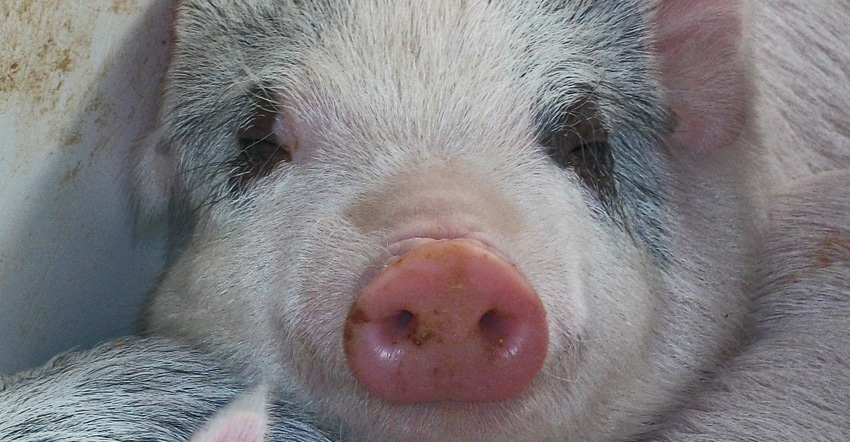
A general permit requesting approval to build a new 4,890-head swine farrowing facility in Fillmore County, Minn., was denied Dec. 18 by John Linc Stine, commissioner of the Minnesota Pollution Control Agency.
The proposed Catalpa LLC, swine facility near Mabel was estimated to generate 7.3 million gallons of liquid manure. Plans called for the manure to be stored in reinforced concrete pits below the two barns and injected in the fall onto at least 732 acres of cropland. More than 1,761 acres of cropland are available for land application among 24 sites in the county, according to the application.
The Catalpa project was the first new feedlot application that MPCA had from Fillmore County since the Minnesota Department of Agriculture released data in early 2018 from its Township Testing program that examines nitrate contamination of drinking water wells. In Fillmore County, 17% of 1,477 wells tested over the health standard limit for nitrate-N of 10 milligrams per liter, or 10 parts per million. Nineteen of 24 townships in the county have private wells at or above the health standard limit.
“That gave me great pause,” Stine said during a news conference in announcing his decision.
More than one feedlot or farm
Stine explained that the issue is bigger than any one feedlot or farm in the six-county karst region in southeast Minnesota. He recommended that the Environmental Quality Board conduct further water quality investigations to address problems with existing nitrate groundwater contamination.
“It is important to look comprehensively at the challenges there,” he said.
Landowner and major investor Al Hein said he is considering the option to apply for an individual permit. Hein and his family now raise corn and soybeans. They once operated a dairy farm, and raised beef and hogs. He and his wife Merilee have three daughters — Laura, Melanie and Alexandra — who, with their husbands, are connected to the farm business.
When asked if he will apply for an individual livestock permit, Hein said he is considering it.
“I have to make a decision soon at my end,” he said, after hearing the MPCA decision.
The individual livestock permit is an option for farmers, according to MPCA. Also known as a customized permit, the individual permit process is more rigorous and in-depth, and it provides a tailored analysis. A farmer could continue to seek an individual permit while a regional study is underway.
“Some people were pushing for an environmental impact statement, and I’m glad MPCA didn’t say that was needed,” Hein added. “If it did, it would have set a dangerous precedent for agriculture.” Normally, projects involving industrial activities, mining or toxic waste require an EIS.
Dave Preisler, executive director of the Minnesota Pork Producers Association, said the organization’s leadership is weighing the potential ramifications of the MPCA decision.
“We did not see a reason to deny the general permit,” he said. “It is good news that an EIS was not called for. But we still need to sort out the next steps.”
Catalpa proposed to build a 1,992-animal unit swine farrowing facility (4,980 sows) in Newburg Township consisting of two barns, an animal mortality composting building, one stormwater basin and a livestock watering well. The 184-by-371-foot confinement barn would have had a 2-foot-deep concrete liquid manure storage area underneath. The 202-by-513-foot confinement breeding and gestation barn would have had a 12-foot-deep concrete pit.
State would pay for study
If the Environmental Quality Board accepts Stine’s recommendation to conduct the regional environmental impact study, it would be paid for by the state of Minnesota and provide a public process for comment and citizen input.
Stine noted that his recommendation for a larger regional study will be more beneficial for farmers, businesses and area residents, as it will provide an overall picture of sources of nitrate contamination in groundwater.
Hein added that, even though his project was not initially approved, he remains optimistic about moving ahead.
“I was impressed with MPCA. They are trying to do the right things,” he said. Hein supports efforts to protect soil and water. And assuming he applies for the individual permit, he is ready to do more to allay environmental concerns. He cited various technologies available to monitor manure storage and groundwater quality.
“We’ll do other things [to address environmental protections],” Hein said. “We need to continue to be careful.”
To learn more about the proposed swine project and MPCA’s decision, and to read public comments on the project, visit MPCA's Catalpa Ag webpage.
About the Author(s)
You May Also Like






